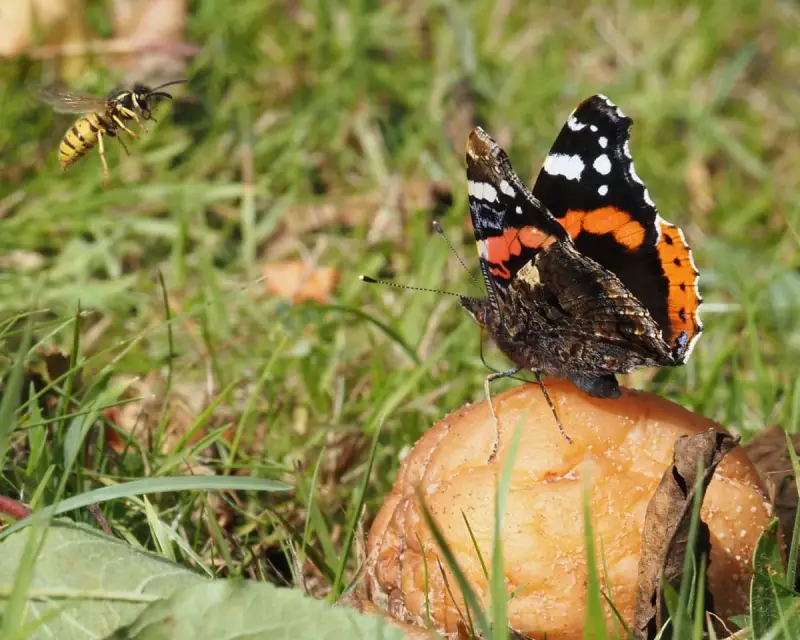
In the quiet corners of the British countryside, a subtle alchemy is at work. While most foragers seek out plump, perfect berries, a deeper secret lies in the fermenting, the bruised, and the seemingly spoiled. This is not waste; it is a wildlife larder of immense importance.
As autumn's grip tightens, a walk through any patch of British woodland reveals a different kind of harvest. Blackberries glisten, not with pristine juice, but with the dark, intoxicating sheen of advanced fermentation. Fallen apples lie in the grass, their skins softening into portals for a host of microscopic decomposers.
The Banquet Within Decay
This transformation is the starting gun for a vital seasonal feast. The process of rot is a form of pre-digestion, breaking down complex sugars and making the fruit's energy more readily available. For countless species, this soft, sugary pulp is far easier to consume and digest than its firm counterpart.
Wasps, often maligned as summer nuisances, become essential guests at this banquet. They flock to the leaking juice, their frantic feeding a critical source of energy before the winter die-off. Similarly, butterflies like the Red Admiral, which now overwinter in the UK, rely on this sugary boost to survive the colder months.
Birds and Mammals: The Main Diners
For birds, particularly migrant thrushes like Fieldfares and Redwings arriving from Scandinavia, a tree laden with rotten crab apples is a lifesaver. The softened flesh is easy to break into, providing the crucial calories needed for their long journey and survival in a new landscape.
Mammals, too, partake. Badgers, foxes, and mice will all readily scavenge windfalls that have begun to break down, utilising a food source that requires less effort to exploit than hunting or cracking hard nuts.
A Lesson in Sustainable Foraging
This natural cycle offers a profound lesson for human foragers. The instinct to pick only the best and leave the rest is upended. In fact, the most ethical and ecological approach is often to leave the prime fruit for the wildlife that depends on it utterly, while the overripe, fallen, and decaying offerings are the true prize for those who understand the forest's economy.
It redefines our relationship with the landscape, asking us to see value not just in perfection, but in process and decay. The rotten fruit is not a failure of the season; it is its promise of continuity, a vital thread in the web of life that sustains Britain's cherished fauna through the lean times.





